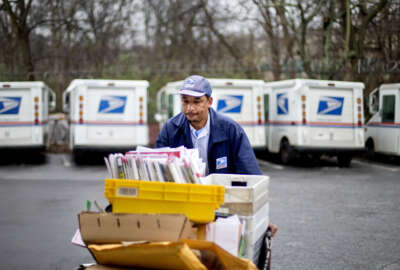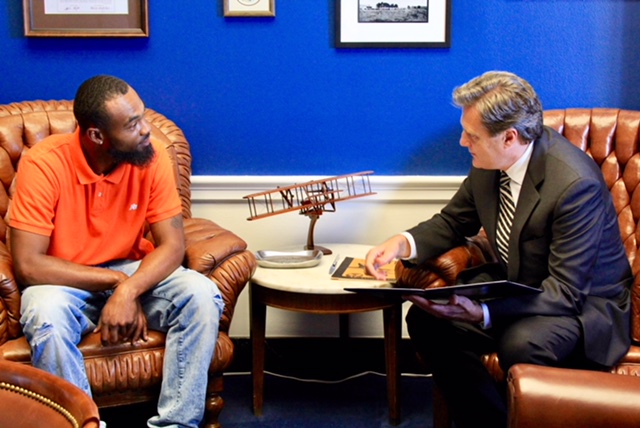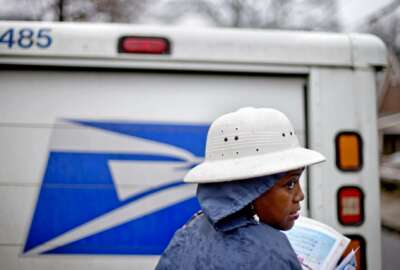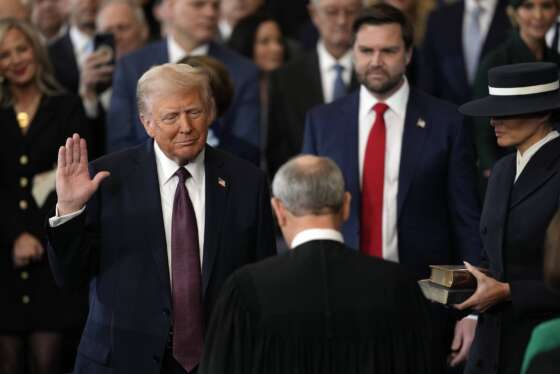
NALC recognizes letter carriers for acts of heroism
The National Association of Letter Carriers paid homage to members whose acts of heroism have helped save lives within the communities they serve.
An elderly woman slips in her home, with nobody around to help her. A fire breaks out, and the fire department hasn’t arrived on the scene yet. A veteran with Post-Traumatic Stress Disorder threatens to take his own life. These events happen every day, but thanks to one common element — the presence of a U.S. Postal Service letter carrier out on delivery — these stories have a positive outcome.
USPS letter carriers have a constant presence in the lives of their customers, and because of that routine, they often are the first ones to alert first responders to an emergency. And other times, they are the first responders.
The National Association of Letter Carriers, one of the major unions representing USPS employees, paid homage on Wednesday to members whose acts of heroism have helped save lives within the communities they serve.
“Letters carriers regard what they do as more than a job — to them, it’s a career in public service,” NALC President Fredric Rolando told members of the postal community at this year’s Hero of the Year Awards.
The Postal Service, which has more than half a million employees, holds a straightforward role in most of its customers’ lives — delivering mail and packages nationwide. But in some instances, letter carriers being in the right place at the right time has led to acts of heroism.
“There is, these days, a lot of talk about leadership in the public sphere. I would suggest that in their own quiet way, the carriers gathered here today have demonstrated the very essence of leadership and of serving others. They saw an urgent danger or an unmet need, and they stepped up. They evaluated the situation, they devised a plan, and they took action,” Rolando said.
While USPS continues to adapt to an industry facing rapid change due to a rise in online services and e-commerce, Postmaster General Megan Brennan told the crowd not to forget about the personal role that letter carriers play on a daily basis.
“The Postal Service is a human organization. People move the mail, and the Postal Service, in an increasingly digitized world, still matters,” Brennan said. “Letter carriers do more than deliver the mail. They live and volunteer in the communities they serve.”
Clinton Parker, a Connecticut-based letter carrier with more than 30 years of experience, was just the familiar face one customer needed on Dec. 6, 2014. Police officers, responding to reports of a veteran with PTSD threatening to take his own life, asked Parker to arrive on the scene after the soldier’s father asked for him. Parker has 27 years of military experience — four years of active duty with the Army, and 23 in the Army Reserves — and still serves as a drill instructor.
“They knew I had years of experience as far as counseling soldiers,” Clinton said. “They knew I had been a platoon leader and had soldiers under my command who’d been to combat and come back.”
After calling the veteran on the phone, Parker, with the support of local police and a SWAT team, entered the doorway of the veteran’s home and convinced him to drop his gun and surrender. Parker had been on the scene for more than eight hours, but he rode in the ambulance with the veteran en route to the hospital.
“I try and stay in contact with him as much as possible. I speak to him and his father. The family’s doing well, he is doing well,” Parker said.
Copyright © 2025 Federal News Network. All rights reserved. This website is not intended for users located within the European Economic Area.
Jory Heckman is a reporter at Federal News Network covering U.S. Postal Service, IRS, big data and technology issues.
Follow @jheckmanWFED






